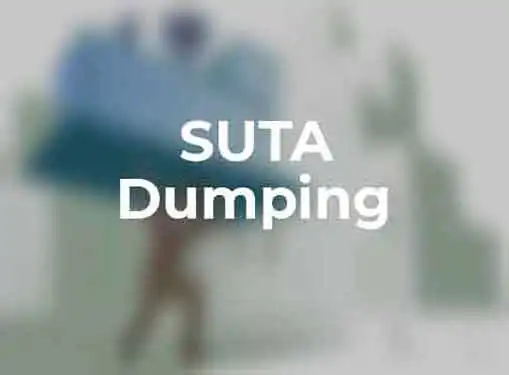Unemployment Benefits
SUTA Dumping
Unemployment taxes are lowest for new companies. If your unemployment taxes are too high why not just shut down the company, restart it under a new name and rehire all your old employees? It's a great plan . . . except for the fact that it's illegal.
For most small businesses, unemployment taxes are just a normal part of doing business.

But in industries that experience high employee turnover (e.g. construction), unemployment taxes can take up a considerable part of the annual operating budget.
Unemployment tax rates are determined by the company's "experience rating"–a system that ranks each employer based on the benefits that have historically been paid to their employees. Businesses with higher turnover rates have higher experience rates, and subsequently are required to pay more unemployment taxes.
New companies are taxed at a special rate that is reserved for new employers. Eventually these companies will earn their own experience rating. But until that time, they are allowed to pay at the lower new employer tax rate.
High turnover companies sometimes exploit low, new employer tax rates in an illegal practice that's called SUTA (State Unemployment Tax Act) dumping. Instead of paying unemployment taxes that are based on their actual experience rating, they "dump" their employees into shell companies they've set up to obtain new employer tax ratings. In another variation of SUTA dumping, employers purchase a business with lower experience rates for the sole purpose of dumping their existing employees into it.
Dumping is an illegal and unethical practice that negatively impacts the entire business community. Here's why . . .
- Dumping creates an uneven playing field. The unemployment tax system is designed to make sure that the companies who benefit most from unemployment benefits are saddled with the highest financial burdens. Dumping reverses the system by giving huge breaks to companies who frequently lay off their workers.
- Dumping negates the disincentive for layoffs. The unemployment tax system is intentionally structured to encourage employers to avoid layoffs whenever possible. Without a financial disincentive, these employers can freely lay off their workers whenever it's convenient.
- Dumping increases your company's tax rate. Unemployment taxes are comprised of two elements. One element (the experience-rated portion) is based on your company's track record with the state unemployment system. The other portion of your unemployment taxes funds unemployment benefits that can't be attributed to specific employers. When a company illegally shuts down and opens under a new name to avoid paying unemployment taxes, law-abiding companies like yours are on the hook for their employees' benefits.
Share this article
Additional Resources for Entrepreneurs


Conversation Board
What's your take on SUTA dumping? We welcome your questions, comments and advice.